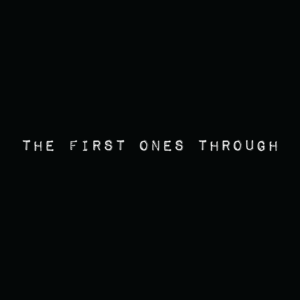Two friends of ours from Berlin once described a well-known founder we all work with like this: “He beats his head against the brick wall — not because he believes it helps, but because he knows something in nature will take it down. And when it does, he’ll be the first to fall through.” Sure enough, the wall eventually tumbled, and the founder fell through — big time. His company ended up being one of the largest IPOs in 2021.
This way of thinking is true for most of our great leaders. Modern history calls out Winston Churchill or General Eisenhower or even Chairman Mao with his consolidation of power in China. Or going back even further, we think of Sultan Selim of the Ottoman Empire. And more than a few women like Maria Theresa of the Hapsburgs or Russia’s Catherine the Great. What these leaders have in common across time and culture is that they all looked in the same direction: forward. They believed that progress was a force more powerful than the political and social status quo, more powerful than physical limitations, more powerful even than reality itself.
Which got me thinking about now: This pandemic, and our emergence. Should we call it a re-emergence? There’s been a lot of talk about going back to what some call “normal.” But if history teaches us anything, it teaches us that change is constant and inevitable. So let’s first agree on this: there’s no such thing as normal (and no “new normal,” either).
Yet there are new behaviors and truths that emerge as we find our way, always forward. What will the next few years teach us about work, life, ambition, and happiness? We’re not soothsayers. But we can make some informed guesses.
Here are mine:
- There will be three types of thinking going forward. First, those who believe the world will go back to the patterns of pre-COVID, from how we work, to how we shop, to how we interact. Second, those who believe the opposite: Nothing will be the same. And finally, those who embrace the ambiguity of both being true. Let’s call them hybrid thinkers.
- More than ever before, a person’s economic position will have an impact on the control they can exercise over the rhythms of their daily life.. Those with resources and (by definition) choices will push back against the leaders and companies that attempt to constrain their newfound freedoms around how and when they work.
- The disparities in how people work will highlight and exacerbate the economic differences in society, in new and unanticipated ways. Take the NYC subway, for example. Instead of being used by a mix of social classes for morning and afternoon commutes, at these times the riders will mostly be those who can’t afford to control their work commitments. This will translate into increased crime and safety issues and further widen the gap between social choices made by the rich and poor.
- Urban and rural living will continue to define the social, political, and economic differences. The rich will expand their ownership of high rise apartments with rural getaways. Rural areas will become too expensive for the locals. Resentments will bubble up into the streets, much like NYC and LA in the 1970’s and 1980’s.
- Governmental institutions related to healthcare, policing, and education will lag and possibly break. The rich will be buffered. The poor, not so much.
So what does this have to do with moving forward? Simply this: We can, as the founder does with his head, work to make a difference. It might not feel like we’re getting anywhere. But when nature makes another change, and takes the wall down, we’ll be the first to fall through. And hopefully we’ll land on the right side of history. Too esoteric? Maybe. So there you have it. Moving forward means we believe in the fallibility of walls and are committed to being the first ones through when they fall. How’s that for positive thinking? For some related reading, check out David Epstein’s new book, Range: Why Generalists Triumph in a Specialized World. Yep, being a generalist helps.
So there you have it. Moving forward means we believe in the fallibility of walls and are committed to being the first ones through when they fall. How’s that for positive thinking? For some related reading, check out David Epstein’s new book, Range: Why Generalists Triumph in a Specialized World. Yep, being a generalist helps.
But here are the practical steps we can all take as we beat our heads against our brick walls:
- Know there is collective strength in common goals and efforts. We each need to do our part to help each other. Be more generous with our time and money. Instead of wasting energy on issues out of our control, focus on local needs.
- Embrace the decisions of our workplace and politicians. The Stoics call this the “will.” It’s those things we can’t really impact. Of course we can contribute and protest. Do that. But know that it has a negligible effect.
- Control that which we can control. Our job. We can stay or go. Our location. Move or not. Friends and family. Choose wisely. We can also inform and influence. Do all of this without being judgmental or self-righteous.
- And most importantly, fix ourselves. Work on our mental, physical, and social health. Our greatest gift to this precious life is our self-improvement (without being all precious about it). Seneca’s view of “polishing” comes to mind. Instead of doing it selfishly, do it because we are committed to being givers versus takers. Real happiness achieved.
Want to hear more from our Co-Founder Renn Vara? Read more of Renn’s blogs.